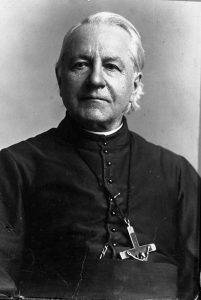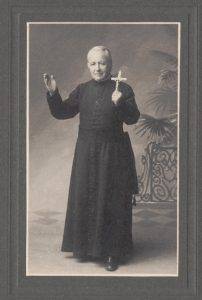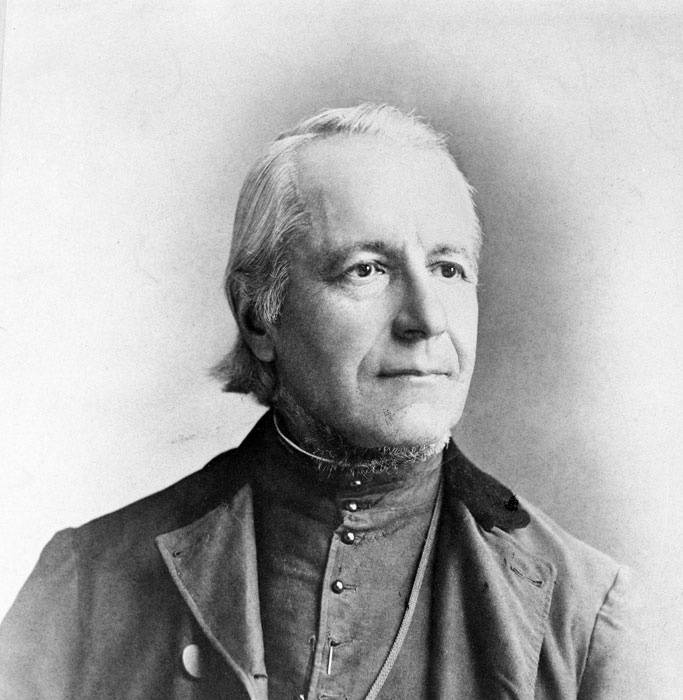Albert Lacombe, OMI – The Man of the Good Heart
In this year of the bi-centennial of the founding of the Missionary Oblates of Mary Immaculate, the members of OMI Lacombe Canada celebrate a centennial of one of their own. Fr. Albert Lacombe, who died in 1916, served as a model for missionaries to both the indigenous people and settlers of Western Canada. (When the five Oblate provinces of Western Canada became one province 13 years ago, they chose as their name “OMI Lacombe Canada”.)

Born in Québec, Albert Lacombe grew up in a large farming family. He received a Catholic education in St. Sulpice, Québec where he entered the seminary. Ordained in 1849, he headed west, serving in Minnesota, ministered to the Métis and Ojibway in the Red River Settlement and accompanied them on their buffalo hunts. He was then assigned to Lac Ste. Anne and ministered on horseback to the Catholics living in Fort Edmonton. With Bishop Taché, he chose the site for the new mission in what is now known as St. Albert and helped build and organize the mission and school and built the first bridge over the Sturgeon River. But his main assignment was to the Cree and Blackfoot Nations, Métis and settlers all over his beloved Alberta.
Fr. Lacombe learned the Cree language so well that he translated the New Testament into Cree syllabics and wrote a Cree dictionary and grammar, which became the standard for the missionary Oblates that followed in his footsteps. With the fast-disappearing buffalo and influx of white settlers in the West, he founded the colony of St-Paul-des-Métis (Brosseau) in Alberta, hoping it would provide for them a new means of livelihood. He was later assigned to Winnipeg (Ft. Garry) to colonize the new settlers arriving in droves in Manitoba.

Returning to Calgary in Southern Alberta, with the Blackfoot, he succeeded in negotiating with the rail-road a large reserve of land and in quelling the Northwest rebellion of 1885. He tended to people affected by the small pox epidemic, and accompanied the treaty party to Grouard, AB to negotiate Treaty 8, established churches, schools and facilities for the aged. Having befriended the Cree and Blackfoot, speaking their language and a friend to all, Fr. Lacombe served as a bridge between them and the new settlers in the West. He traveled throughout the West, spreading the Christian faith wherever he went. With his name and legacy all over the prairies, the Oblates celebrate this centennial with joy.


